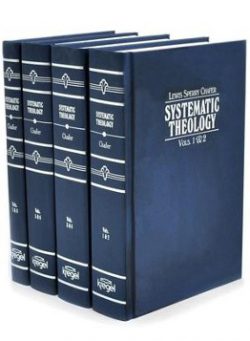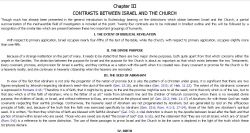Author: Mike Abendroth
Publisher: Day One Christian Ministries
Publication Date: 2008
This work points preachers to learn directly from the preaching ministry of Jesus Christ. It is excellent material for those committed to expository preaching.
“The pulpit lies at the heart of the church.” — Abendroth
Table of Contents
- Jesus viewed preaching as preeminent.
- Jesus preached with a high view of Scripture.
- Jesus preached Christ, and Him crucified.
- Jesus preached doctrine.
- Jesus preached as a herald.
- Jesus preached discipleship.
- Jesus preached for a verdict.
- Jesus was an expository preacher.
Chapter 1. Jesus viewed Preaching Preeminent
What attracts people to a local church? Some answers might include tradition, friends, family, fellowship, geographic location, or children’s programs. But, from a biblical standpoint, what should draw people to any local church? The preaching of God’s Word—that must be at the very center of God’s assembled flock. Biblical preaching has hit the skids and has been replaced with the latest popular gruel that is deficient in nutrients because it is ashamed of the words of Jesus and His apostles. People attend worship services with consumer mentalities and the wrong object in mind. They go to please “me,” not to worship God. Trying to find a preaching class in some seminaries is more akin to a lesson in a scavenger hunt, while management and administration classes multiply like rabbits in the springtime. The obsolescence of preaching is not happening before us, it has already happened. (Excerpt from chapter 1)
Chapter 2. Jesus preached with a high view of Scripture
Remember, Jesus never shied away from correcting anyone who had a wrong view of the Scriptures (Matthew 5; Mark 7:1–13; etc.). Yet, amazingly, He never corrected the view in Palestine regarding the canonicity of the Old Testament. It was assumed by Jesus to be authentic even though it was hundreds, and in some parts thousands, of years removed from the original inspiration. Christ’s attitude toward the authenticity of the Bible is more amazing because there was not one of the original autographs extant at the time of His ministry. (Excerpt from chapter 2)
Chapter 4. Jesus Preached Doctrine
To further complicate the problem in evangelicalism, many pastors pay lip service to doctrine (they say they believe in it), yet they minimize it from the pulpit, thus denying their actual beliefs. Their methodology betrays their so-called belief in doctrine, as they purposely and systematically jettison deep, meaningful words describing God and His amazing dealings with people. “Simple,” “monosyllabic,” and “relevance” push thought-provoking concepts such as of the triune and transcendent God out the window. To many, the motto “shallow sells” has pragmatic value, so their pulpits harmoniously chant the well-received refrain, “down with doctrine.” Tragically, the congregation adds its antiphonal refrain with glee. (Excerpt from chapter 4)
Chapter 5. Jesus preached as a Herald
You Must Herald Authoritatively
As a pastor, you have the full authority of a herald. You need not pine away for it: you already have it. Your authority is a delegated authority, but it still gives you the right to preach. Paul says that your preaching should contain reproving, rebuking, and exhorting (2 Timothy 4:2). A.W. Tozer said, “We are not diplomats but prophets, and our message is not a compromise but an ultimatum.” Tozer’s words convey the proper sense of “reprove, rebuke, exhort.” Your authority must call people to moments of crisis. You can read music books but they do not command you to perform sonatas. Cookbooks are interesting, but they do not force you to make chocolate chip cookies. (Excerpt from chapter 5)
Chapter 7. Jesus Preached for a Verdict
Jesus preached for a decision, an ultimatum. His preaching left no room for bystanders to critique His style or method of preaching. His audiences were too busy trying to keep their heads above water as the high-powered words of the Savior flooded them with confrontation. When Jesus preached, there was no “DMZ” (demilitarized zone) where people could hide. When Jesus declared the will of God, people, young and old, Jewish and Samaritan, did not leave as dispassionate, disinterested observers who simply audited His messages. Instead, proverbial fence-sitters were either compelled by the Holy Spirit to repent and obey or they quickly, and of their own doing, sped away to return to their own self-deluded comfort zones. (Excerpt from chapter 7)
Chapter 9. Jesus was an Expository Preacher
In examining Nehemiah 8:8, the author builds his case for expository preaching being the norm for the Old Testament men of God, and this norm is the norm that Jesus followed in the New Testament and is our example and imperative to follow in our ministries today.
Excerpt from chapter 9.
The traditional interpretation has been that they [the Levites] translated or paraphrased the Hebrew text into Aramaic, which would have been more easily understood by the ex-Babylonian Jews … This may well have been the case, though the text says nothing directly about translation, and some have thought that the Levites’ task was not translation but explanation (for their teaching function). The key word is meporas (v. 8), clearly, which literally signifies “separated, split up,” i.e. with distinct pronunciation, or, more probably, with pauses between each verse.
Purchase a physical hard copy of this book or this work in pdf format at DayOne Publications.












